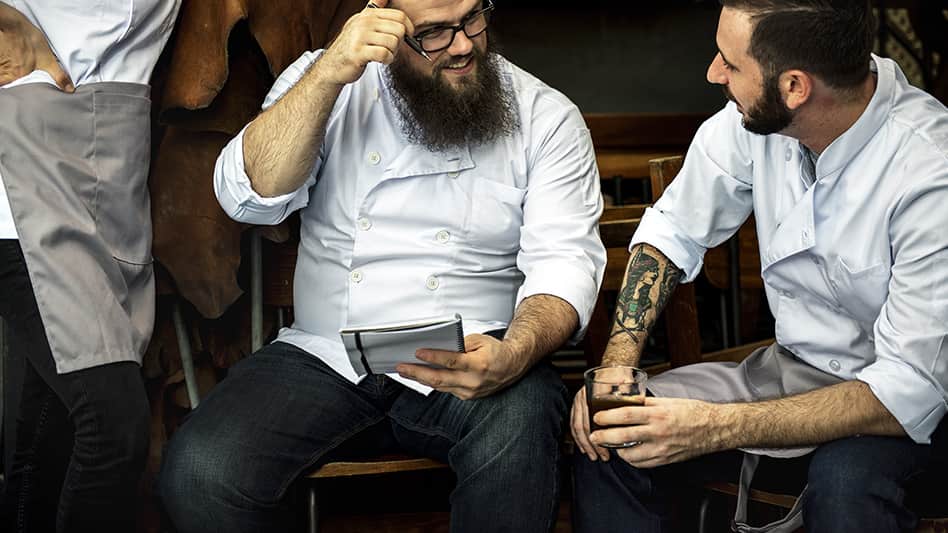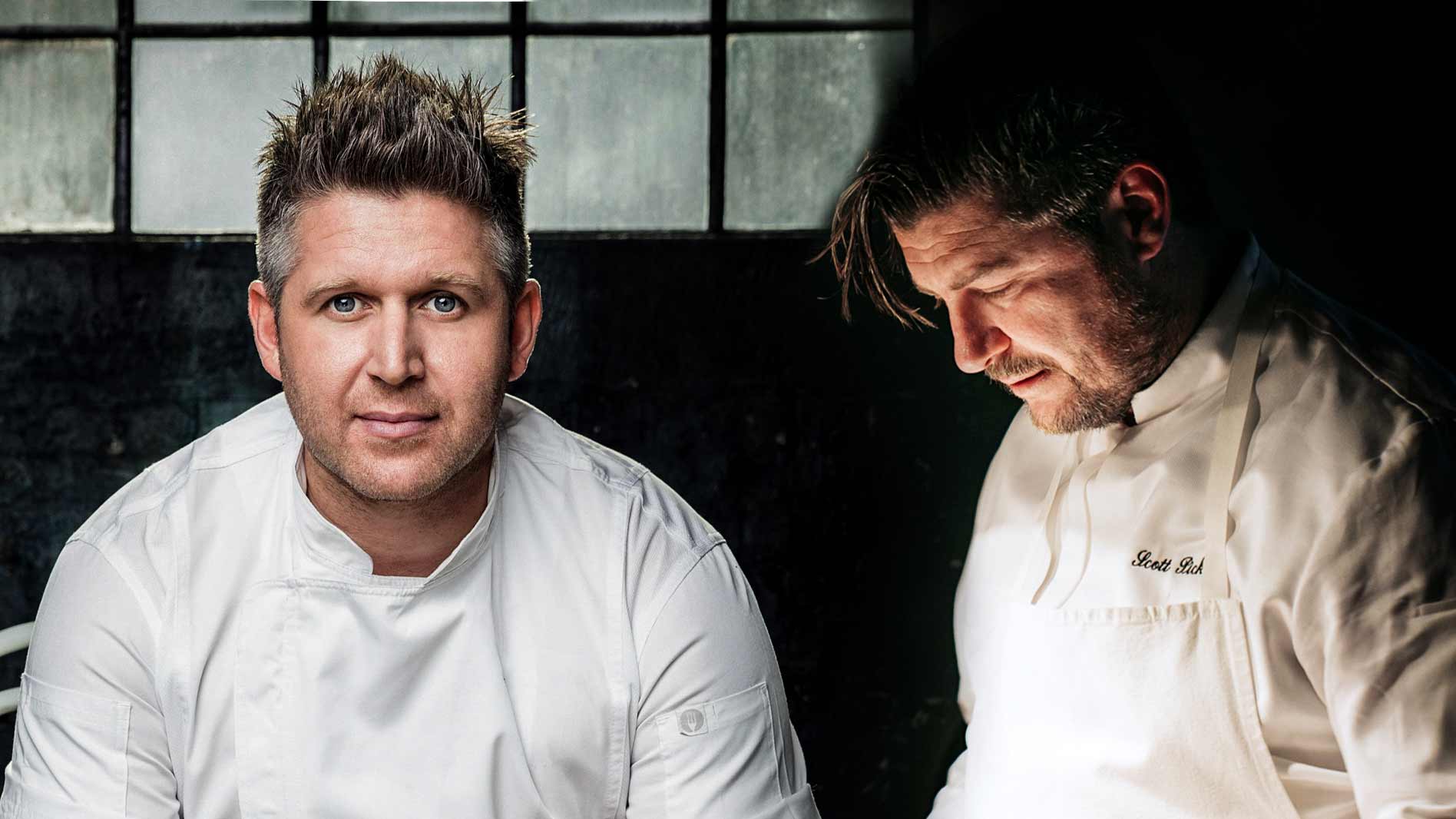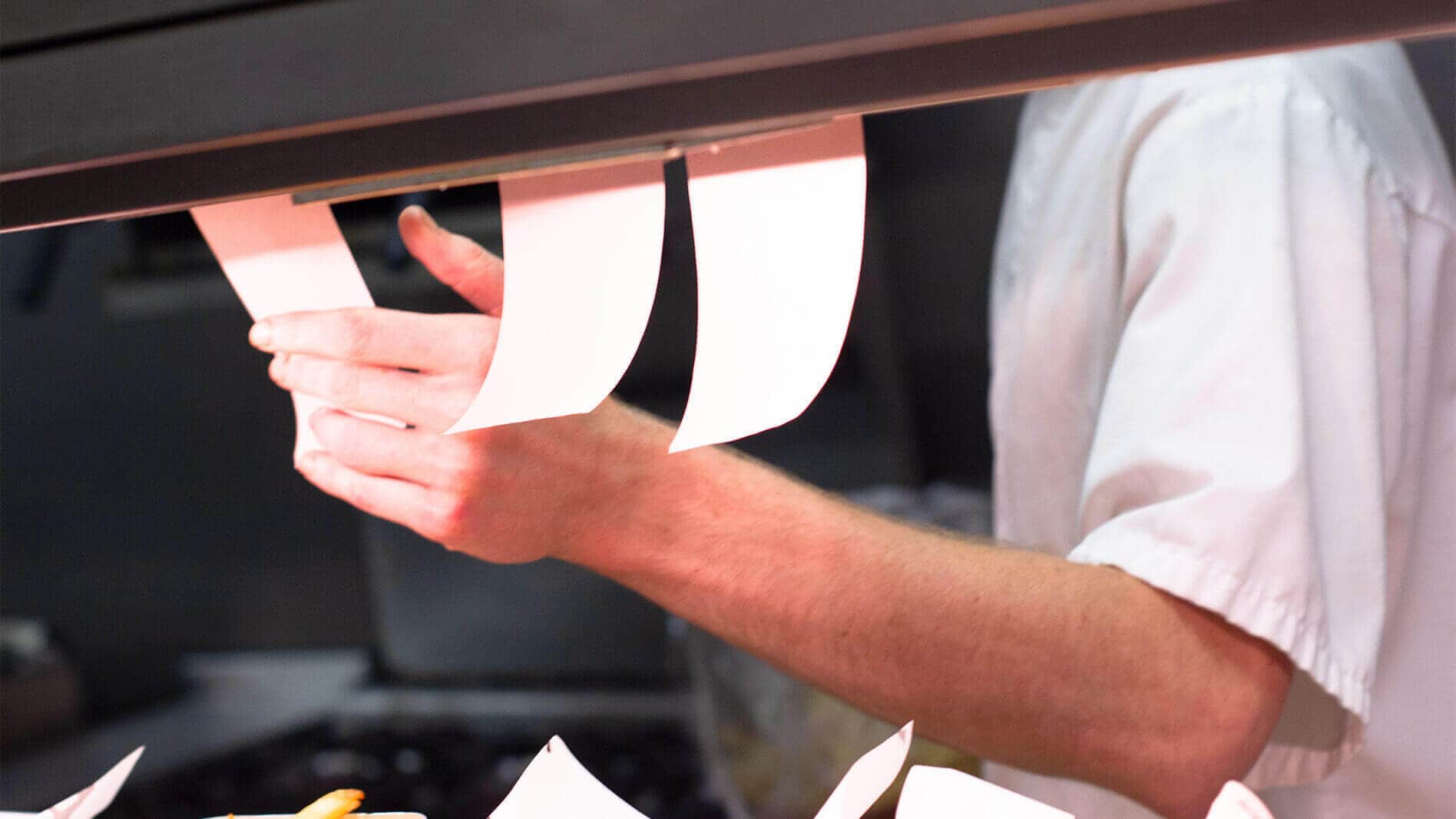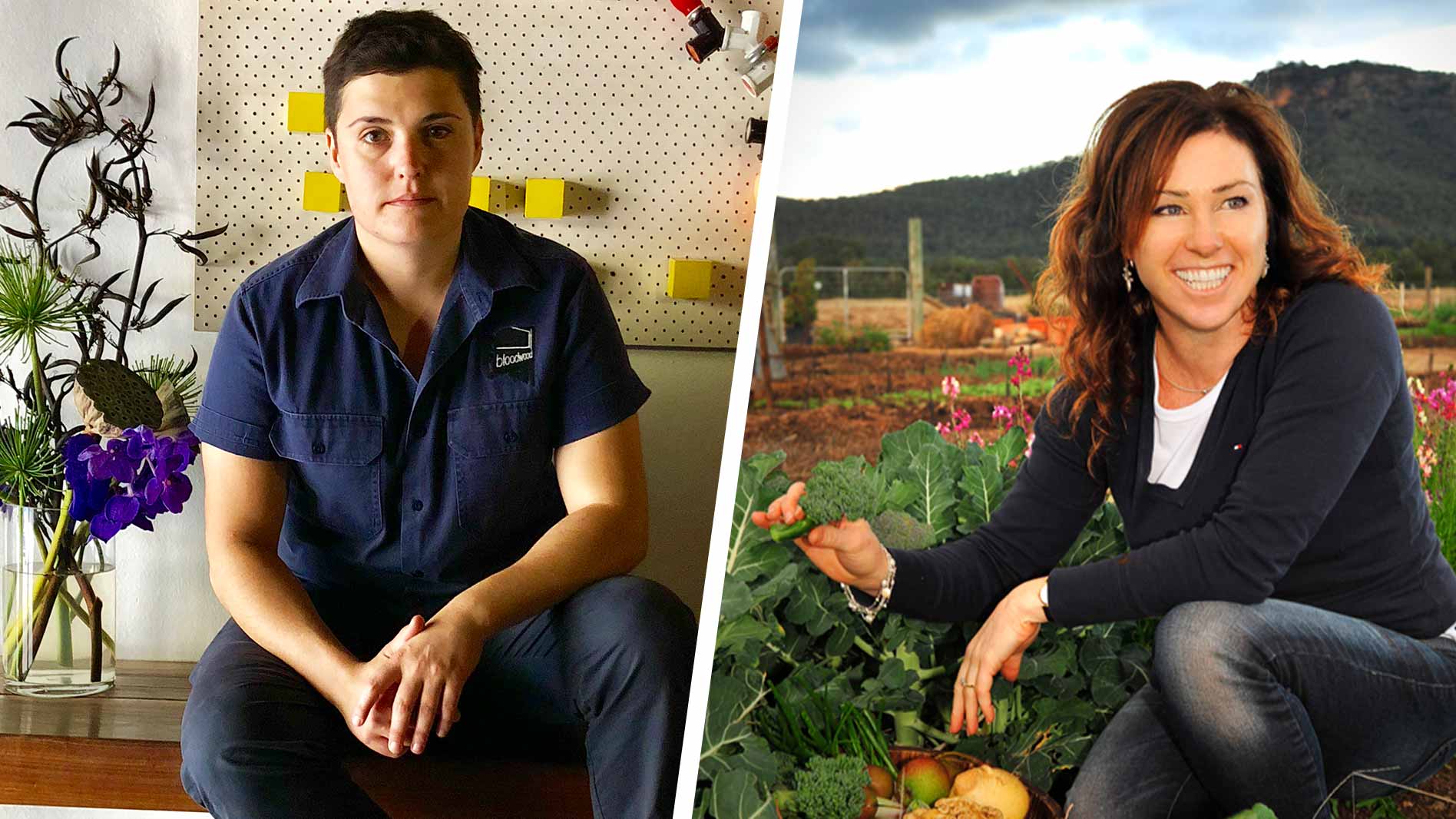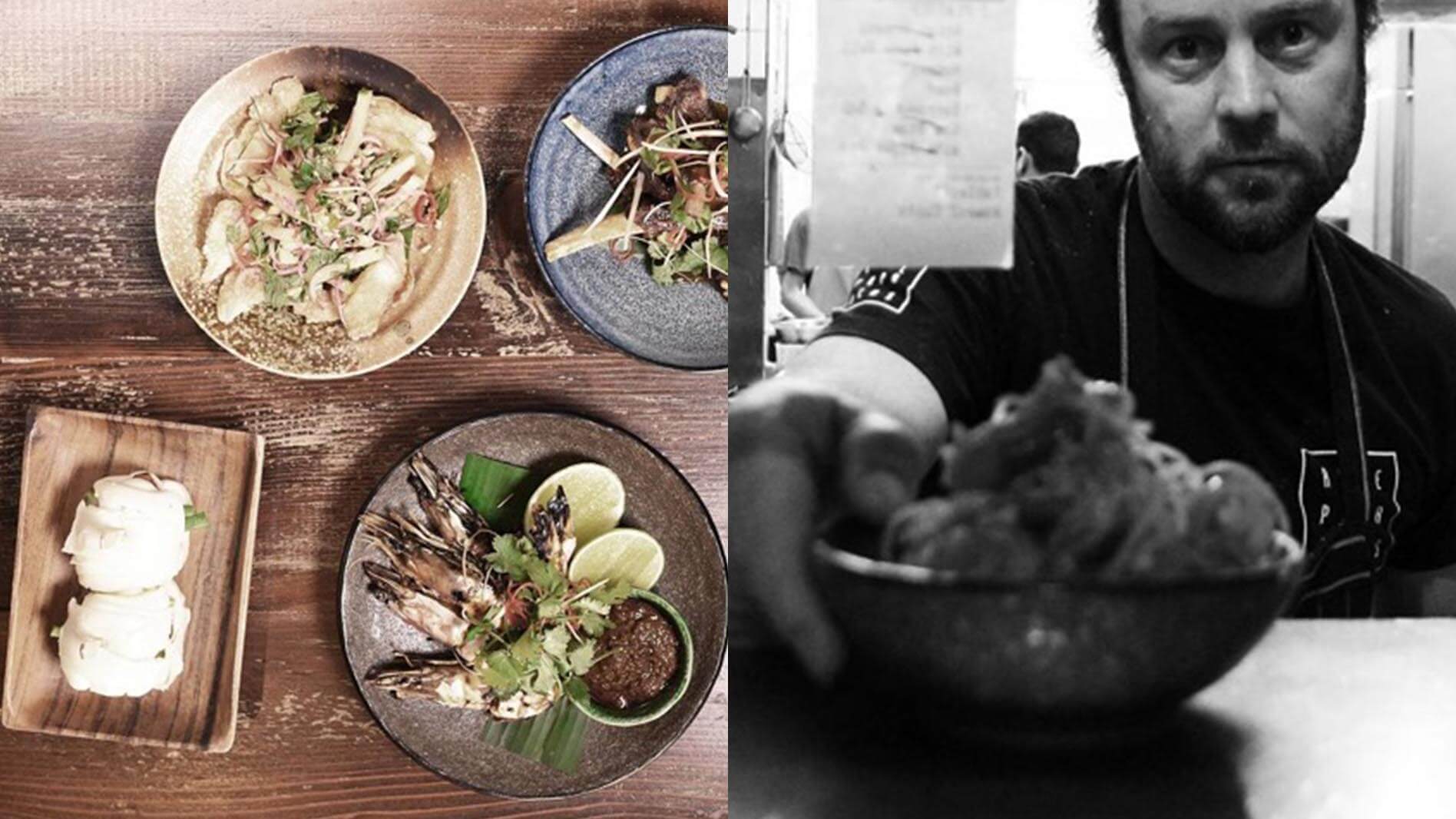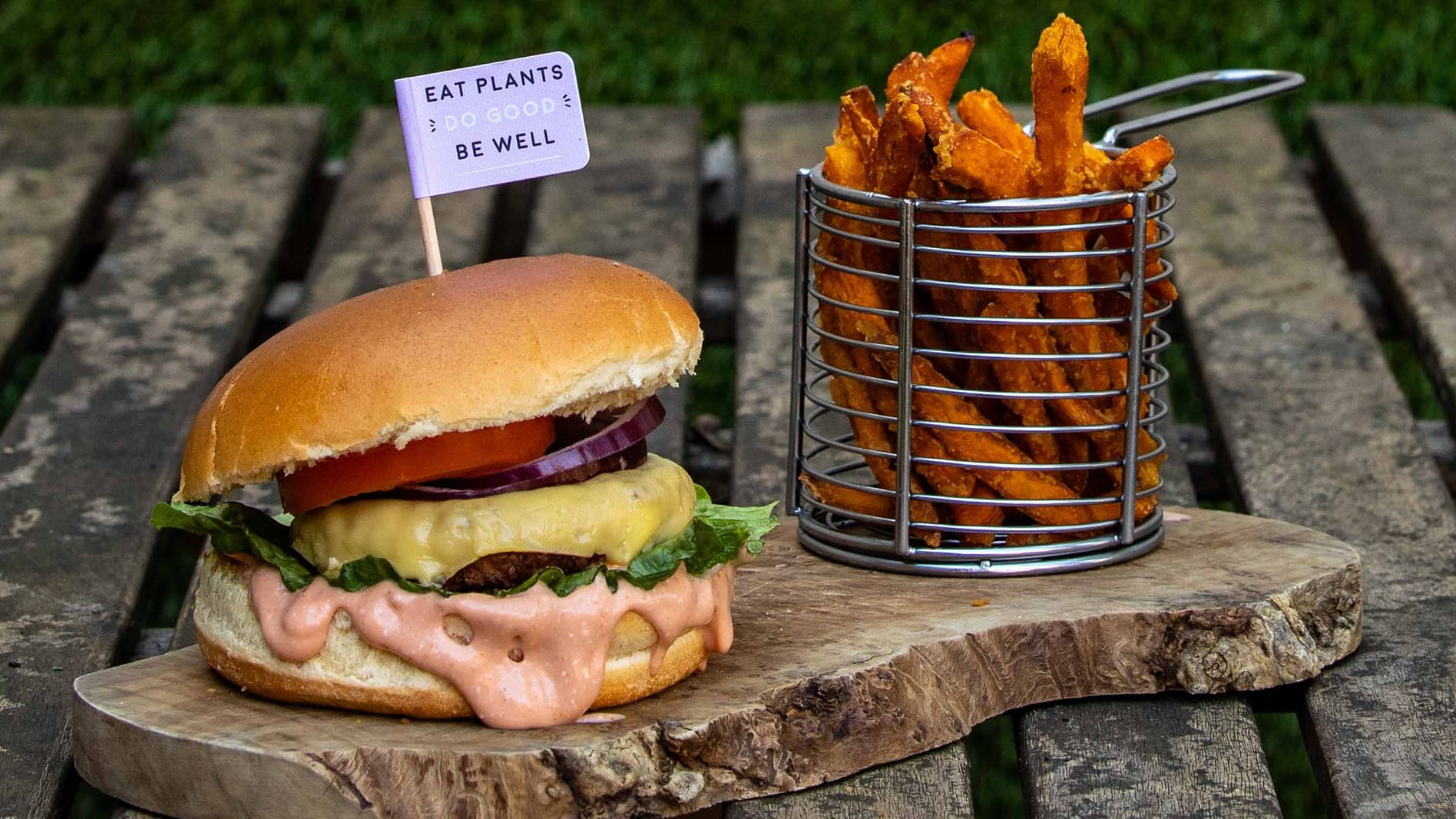Be inspired with recipes created by chefs.
Sign up for updates about products, special offers, news and promotional materials from Goodman Fielder.

Summary
What we are currently witnessing in the hospitality industry is something no one has ever seen before.
And it’s times like this where we must rally together and really lean on our friendships and mentors within the sector to ensure the future of hospitality is stronger than ever before.
Over the last month, the industry as a whole has taken a real hit.
From being forced to put distance measurements in place to having to fulfil takeaway only menus or for some, simply shutting doors – times have never been worse.
But the best thing about hospitality are the friendships that are formed during the years of working either back of house or front of house.
It’s an industry that is built on mentorships.
Think about it…who was the one you called for advice, the one you learnt all the tricks of the trade from, the one you would rant and gloat to about your day in the kitchen?
It’s safe to say you had a mentor that helped guide you through the long days and nights behind the pass.
Someone who helped you gain a clear vision on what you wanted your future to look like, when deep down you wanted to throw in the towel.
“The nature of the industry is fast paced, with a very much ‘the show must go on’ mentality, ” Lisa Hobbs from Women In Hospitality told Goodman Fielder Food Service.
“This means that there is not a lot of time for people to focus on their careers,
“As an industry, we are not as evolved as other industries in this respect and that is why we wanted to do a mentor program,” she added.
So, while it is no secret the hospitality industry is tough, having a mentor has endless benefits, not only for yourself but also your colleagues and business.
So, what is a mentor?
A mentor is someone who is willing to share their experience, insight and expertise with you to allow you to learn and develop your skills.
The primary purpose of mentoring is to drive personal growth and build skills and knowledge.
The concept is valuable for all experience levels and consists of a relationship that is built on trust and open communication.
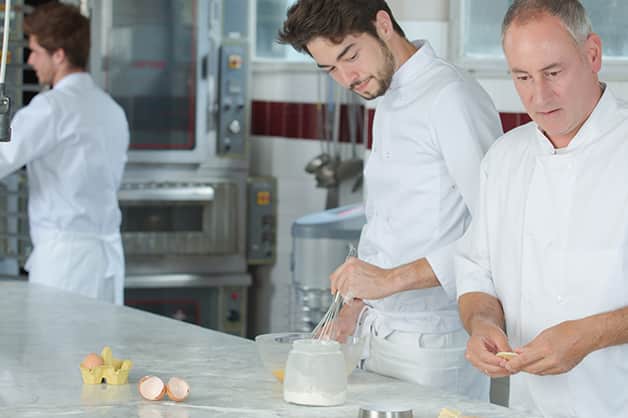
Benefits of a mentorship program:
There are a number of benefits to be gained for employees who are involved into a mentorship.
From skills development, on-the-tools training, career satisfaction and professional networking opportunities, the benefits are varied.
“At the mentee level, [mentoring] assists you with advice in relation to where you are at in your career and what you are capable of…as well as giving you assistance with skills and career progression,” Lisa explained.
“Having a mentor opens you up to a big network…because you are opened up to someone else’s world and you are often working with people you wouldn’t get to work with ordinarily.”
Lisa added that the best thing about mentorships is that “both the mentor and the mentee benefit.”
She explained: “In mentoring it is bio-directional, both mentor and mentee gain through the relationship.”
But mentoring isn’t just valuable for individuals who are seeking to grow or have a desire to teach, it is also beneficial for businesses.
Mentorships can provide venues with a more satisfied workforce, decrease staff turnover rates and create more loyal employees.
And when it comes to the hospitality industry, Juliana Payne, CEO of Restaurant & Catering Australia believes mentoring “provides the skills to deal with the workplace.”
“We’ve found that if young new apprentices who come into that environment have someone who is a sounding board for them and can give them a heads up of what to expect, it really helps to keep them in the role.”
Director of Art Of Mentoring, Melissa Richardson echoed the comments to Goodman Fielder stating: “People who are engaged in mentoring relationships are more likely to stay with an organisation.
“They tend to be more productive, have more promotions – there is practically an improvement in everything.”
The qualities to look out for in a mentor:
When looking for a mentor, ensure they hold a higher position and more years’ experience working within the industry.
For example, your mentor may be your manager, the owner of the venue you’re working at or a family member or friend who works in hospitality.
Or it may even be another chef at a different venue because you are “interested in a different cuisine or a different area of cheffing”.
But what makes a good mentor stand out?
“A good mentor must have the disposition and desire to help other people.
“It requires a willingness to reflect on and share one’s own experiences, including one’s failures.
“Great mentors must be able to both ‘talk the talk’ and ‘walk the walk’,” a study by Forbes states.
So, when it comes time to search for an effective mentor, there are a few characteristics to look out for:
Accessibility and reliability:
They need to be approachable, reliable and committed to attending scheduled meetings and phone calls.
Generosity:
They’re comfortable sharing their experience and knowledge but also a listener and someone willing to help you grow.
Empathy:
Open to sharing their failures and personal experiences, as well as personal insights that are relevant to you.
Patience and honest:
They feel comfortable talking openly, providing honest feedback and asking open-ended questions.
They also need to be willing to take a step back and actively listen.
Tips on being a mentor:
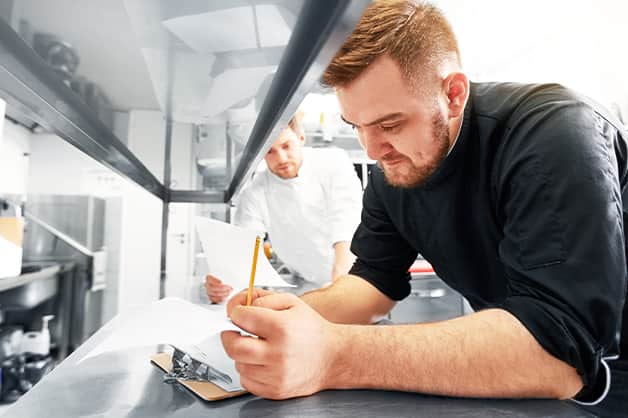
A lot of executive chefs take on the role as a mentor without even realising because of their nature of wanting to share their knowledge and helping colleagues find their feet (and voice).
But before putting your hand up to become a mentor, ask yourself:
- What kind of mentor do I challenge myself to be?
- What mindset(s) am I bringing to the conversation today?
A mentoring mindset is a set of beliefs that provides guidance and helps orient decision making.
They frame how one views situations and suggests how one may might react.
Types of mentoring mindsets, according to Art of Mentoring are:
- Curiosity: doesn’t make assumptions and ask questions.
- Humility: believes they still have much to learn themselves and don’t put themselves on a pedestal.
- Respect for difference: their difference does not in any way make them wrong or deficient.
If you’re interested in becoming a mentor, there are a number of things you need to consider, with the biggest being, the need to put your ego to the side.
“If [you] want to be a mentor, take an interest in someone and their career…though [you have to] give up your addiction to giving advice,” Melissa explained.
“What can happen when you first start talking to a mentee is you jump to a bunch of conclusions and launch into giving them the pearls of your wisdom”.
This could then result to you “solving the problem but the wrong problem because you haven’t explored it enough.
“So, the biggest tip is, don’t fall into the trap of jumping in and giving advice.
“Do a lot more listening and bring a lot of curiosity to the relationship.
“Be genuinely curious about the person and ask questions and really listen and then the magic just happens,” Melissa concluded.
Lisa echoed the comments, adding: “Overall, mentors need to be able to motivate and encourage people.
“[Practice] active listening, supporting listening; it just general support for that person who is going through the process because sometimes it’s not that easy.”
According to Australia Council, an effective mentor needs to be able to:
- Listen attentively and provide feedback and direction.
- Share your own experiences that are relevant to a situation or goals.
- Challenge your mentee’s approach to situations to provoke their highest standards and ambitions.
- Clarify and encourage your mentee to be clear about their rationale for decisions and proactive towards their career goals
- Affirm value and validate your mentee.
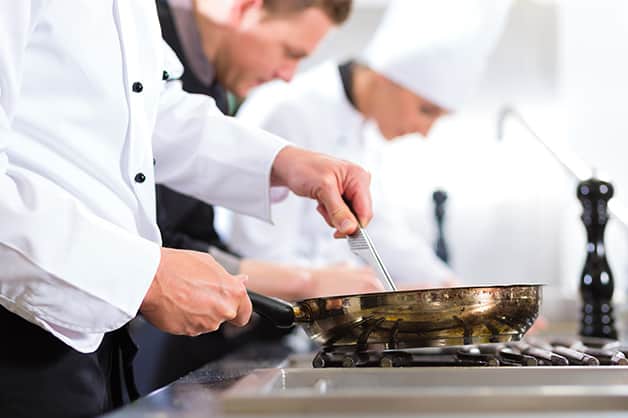
Once you’ve set yourself up as a mentor, you need to agree on guidelines and expectations (for both parties).
Then, open the lines of communication and organise regular check ins to allow the time to share knowledge, experience and overall thoughts.
Lisa explained that the Women in Hospitality mentoring program encourages their mentors to involve their mentee in every way possible.
“We suggest you get the mentee to take minutes of your sessions and send them to you within 48 hours.
“This will give you a good idea to what has been understood and what you were talking about.
“Get your mentee to give you questions before the session that way you have time to think about what you need to answer and how you will answer it and if you need any resources, you can gather them,” Lisa added.
When it comes to meetings, Lisa suggests “at least one catch up session per month and then regular contact in-between via phone, text or whatever.”
Conclusion:
Mentoring is a concept that is most likely already occurring in the kitchen, without it being acknowledge and given a title.
But it is also often a concept that is underestimated when it comes to keeping staff (especially younger chefs) engaged, happy and learning.
Though it is important to always remember, that being a mentor doesn’t mean delegating tasks to junior staff.
It is about handing out advice, being an ear that is willing to listen and helping guide mentees through the everyday tasks (and beyond) in the kitchen.
Though, if you are the mentee, you need to be willing to listen to the advice handed over and eager to learn.
By having a rapport with an experienced chef, you will learn how to discern right from wrong, pick up some tips and tricks and learn from someone else’s experience, both the good or bad.
It couldn’t get much better than that – right?
We would love to hear your mentoring stories. Share yours with us by filling out the form below or head to our Facebook page and let us know.
Related Ideas
25th November 2022
Mental Health in Hospitality: How One Conversation Can Save a Life
Renowned chefs Scott Pickett and Massimo Mele talk about their own battles with mental illness and why they are now opening up.
9th March 2022
How to Design a Restaurant on a Budget
It’s no secret that opening a restaurant is expensive. But what if you can do it while sticking within your budget?
4th February 2022
Taking Stock of Inventory Management: 8 Tips to Stay Ahead
Effective inventory management can mean the difference between an average restaurant and a great one. Here are some tips for keeping tabs on the ins and outs of your kitchen.
